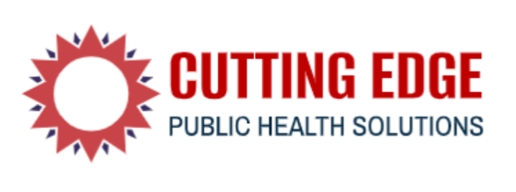"If you do not change direction, you may end up where you are heading" - Lao Tzu
Edward Oladele
April 24, 2025 |
5 mins
In recent times, it has been a past time to consider the applicability of principles that seem so well applied in individual life to public policy. In this article, I urge a collective reimagination of the cornerstone for universal health coverage.
Nearly half a century ago, the Alma-Ata Declaration boldly proclaimed primary health care (PHC) as the key to achieving "Health for All." Its wisdom resonates even more profoundly today, yet the world has undeniably transformed. Technological advancements, demographic shifts, the relentless march of non-communicable diseases, disease outbreaks, emerging and reemerging diseases, the escalating impact of climate change, and now, significant reductions in international aid, particularly impacting Africa, demand a radical reimagining of how we understand and invest in PHC. It’s time to move beyond simply reciting Alma-Ata; we must breathe new life into its core principles for the realities of the 21st century.
True, we have glimmers of hope dotting the continental landscape. The few success stories powerfully illustrate the transformative potential of accessible PHC in saving lives and nurturing well-being. How do we make these African success stories, not the exceptions, but the predominant narrative?
The stark reality is that the direction most of Africa is headed (in health) is not the desired one. While progress has been made, large inequalities persist. For instance, sub-Saharan Africa bears 24% of the global disease burden but has only 3% of the world's health workers. But this article is not about the inequalities or challenges, it is a call to action to chart a new way forward. True, we have glimmers of hope dotting the continental landscape. The few success stories powerfully illustrate the transformative potential of accessible PHC in saving lives and nurturing well-being. How do we make these African success stories, not the exceptions, but the predominant narrative?
The recent eye-opening cuts in aid funding present an opportunity to accelerate a fundamental paradigm shift towards effective and efficient PHC. It is the wake up call that we needed, to change direction. We must evolve a PHC model that harnesses digital technology to amplify reach and impact, even when resources are stretched thin. Reimagining PHC also demands a profound shift in our collective perspective. It is not merely the initial point of contact with a sprawling health system; it is the very bedrock upon which all other levels of care depend for their effectiveness. Investing wisely in a strong and vibrant reimagined PHC is not simply a moral imperative; it is, without a doubt, an economically sound strategy. Indeed, studies have shown that for every $1 strategically invested in primary health care, we can anticipate a remarkable return of up to $9 or more in terms of improved health outcomes, a more productive workforce, and significantly reduced downstream healthcare costs.


Taking on new life. Photo credit Mick Haupt
This article was first published on LinkedIn
The Yoruba people in their wisdom, will say “owo kan o gb’eru dori” [one hand cannot lift the load onto the head]. This call to reimagine PHC for the next 50 years is a call for collective action. To truly transform PHC for the next 50 years and navigate these challenging times, we must:
Champion Integrated Care: Break down the silos and embrace a holistic approach that efficiently delivers well-being within accessible PHC settings and communities.
Deeply Engage Communities: Cultivate genuine community participation in the very design, delivery and funding of PHC services.
Strategically Leverage Technology: Wisely harness the transformative power of digital tools to expand access to care, streamline data management for informed decision-making, and foster seamless communication between providers and communities.
Prioritize Prevention and Health Promotion: Invest boldly in proactive measures that address the root causes of illness and empower individuals to adopt and maintain healthy lifestyles. The good old adage, prevention is better than cure, is not about to stop holding true.
Empower Our Health Workforce: Equip adequately-staffed PHC workers with the cutting-edge skills, ongoing training, and unwavering support needed to deliver comprehensive, compassionate, and high-quality care. Robert Greene, it was, who said that "the future belongs to those who learn more skills and combine them in creative ways."
Ensure Sustainable Financing: The recently released concept note on African health financing by Africa CDC shares key pillars.
The path ahead, particularly in Africa, will undoubtedly present significant hurdles. However, by courageously reimagining PHC as a dynamic, integrated, and community-driven cornerstone of health, we can move with greater purpose and determination towards achieving health equity and building resilient health systems that truly serve all our people, leaving no one behind. The visionary spirit of Alma-Ata endures; if we want a future with health for all, we must now take a bold, innovative, yet deeply grounded approach for the 21st century. Afterall, as Peter Drucker says, "the best way to predict the future is to create it."
The visionary spirit of Alma-Ata endures; if we want a future with health for all, we must now take a bold, innovative, yet deeply grounded approach for the 21st century.
Cutting Edge Public Health Solutions
Building a healthier future through strategic consulting and value-driven partnerships.
info@cephs.org
© 2025. All rights reserved.
